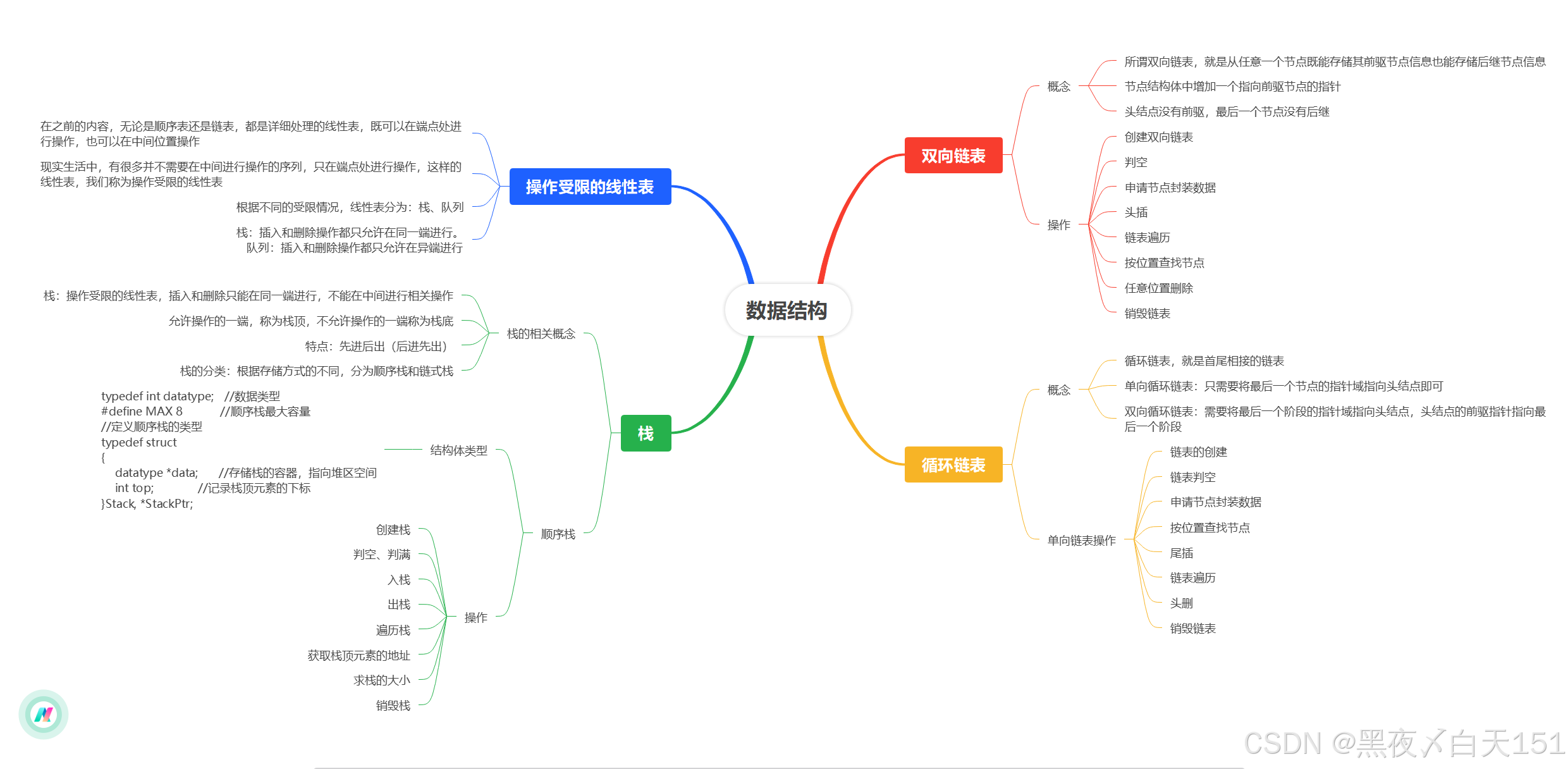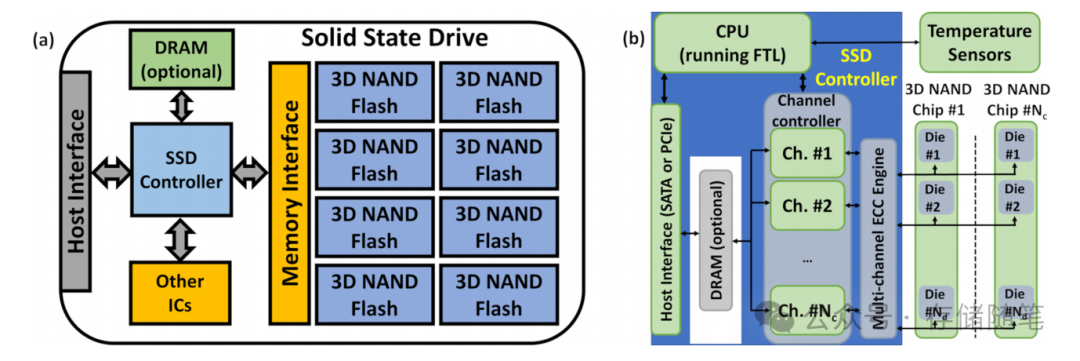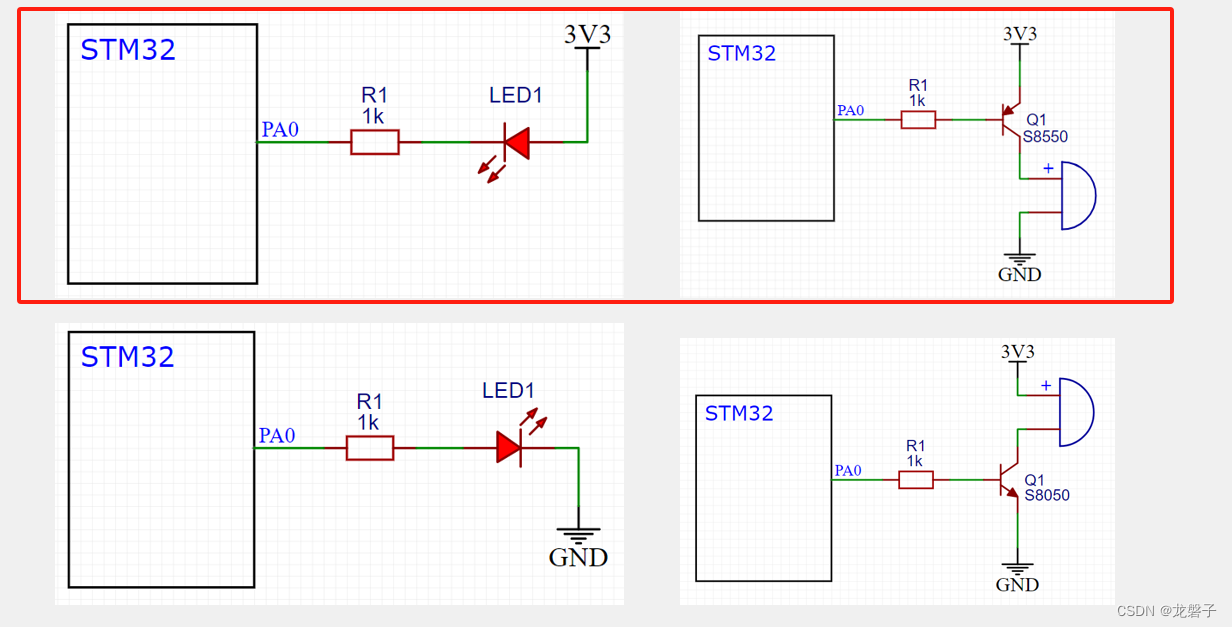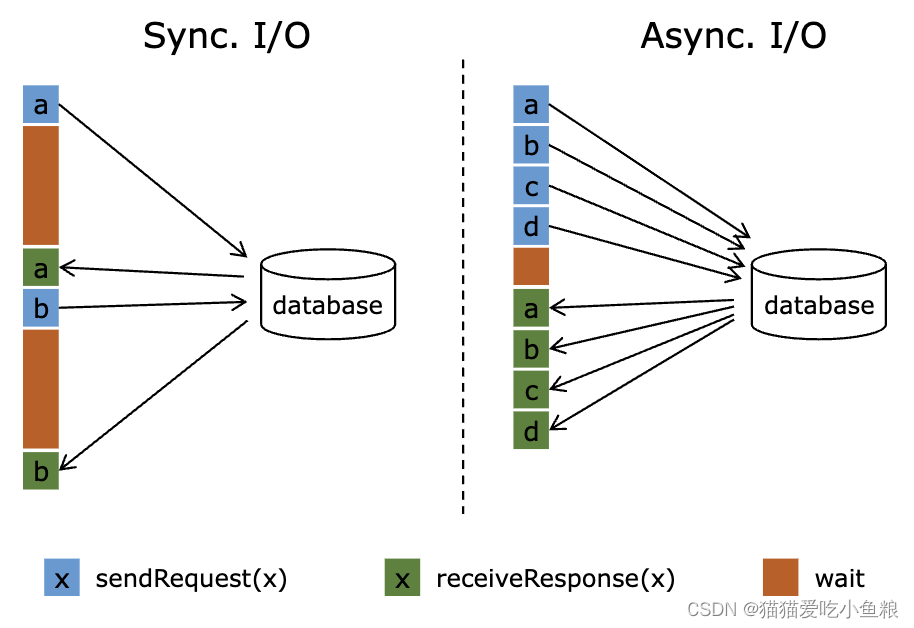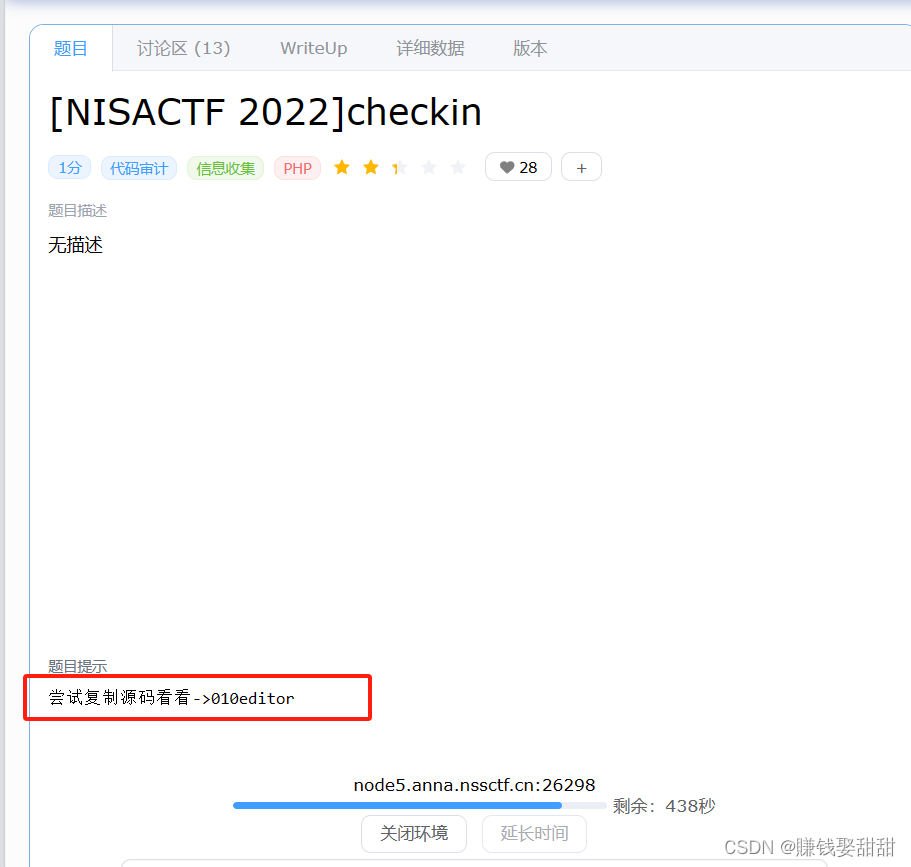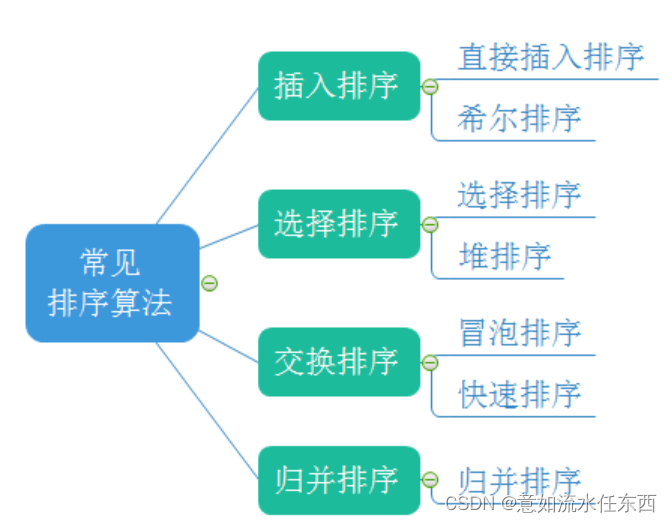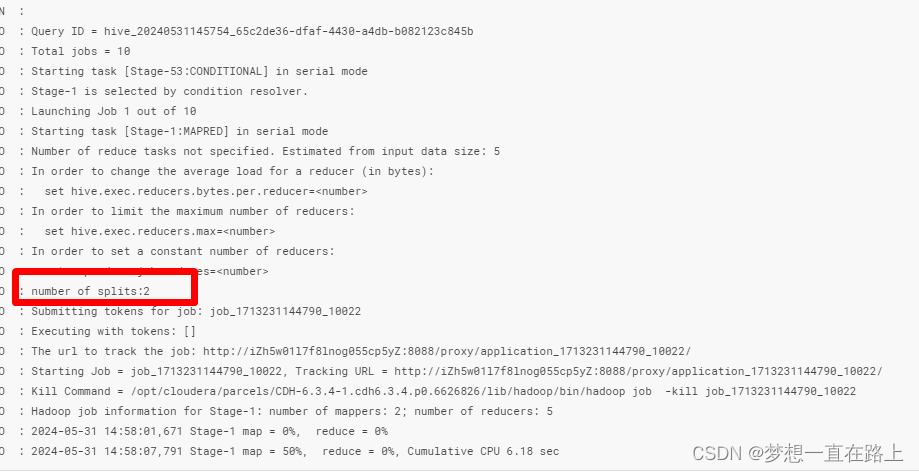目录
list的pop_back() push_front() pop_front()
list模拟实现
list节点
首先看节点:list底层是一个带头双向循环链表
template <class T>
class list_Node{
public:
T _data;
list_Node<T>* _prev;
list_Node<T>* _next;
list_Node(const T& data)
:_data(data),
_prev(nullptr),
_next(nullptr)
{
}
};template <class T>
class list{
public:
typedef list_Node<T> Node;
list(){
_head = new Node(T());//不能使用0初始化,因为类型不确定
_head->_next = _head;
_head->_prev = _head;
}
private:
Node* _head;
};
}list的push_back()函数
void push_back(const T& x){
Node* newnode = new Node(x);
Node* tail = _head->_prev;
tail->_next = newnode;
newnode->_prev = tail;
newnode->_next = _head;
_head->_prev = newnode;
//insert(end(), x);
}list的迭代器操作(非const)
list在物理上空间不是连续的,因此不可以像vector一样使用
typedef Node* iterator
Node* 不符合遍历的行为
List_iterator封装Node*
再通过重载运算符控制它的行为
因此这里我们可以使用一个类来封装使用
template <class T>
class List_iterator{
public:
typedef list_Node<T> Node;
typedef List_iterator Self;
//不需要写析构函数,这个节点又不是这个类的
//一个类一般不写析构,也就不需要显示写深拷贝
List_iterator(Node* node)
:_node(node)
{
}
//日期类返回一个日期,那么迭代器返回一个迭代器
//++it
Self& operator++(){
_node = _node->_next;
return *this;
}
//--it
Self& operator--(){
_node = _node->_prev;
return *this;
}
//it++
Self operator++(int)//加参数 区分前置后置
{
Self tmp(*this);
_node = _node->_next;
return tmp;
}
//it--
Self operator--(int){
Self tmp(*this);
_node = _node->_prev;
return tmp;
}
T& operator*(){
return _node->_data;
}
bool operator!=(const Self& it){
return _node != it._node;
}
bool operator==(const Self& it){
return _node == it._node;
}
T* operator->(){
return &(_node->_data);
}
private:
Node* _node;
};
注意: T* operator->()的意义,比如下面的例子
struct Pos{
int _x;
int _y;
Pos(int x = 0,int y = 0)
:_x(x),
_y(y)
{
}
};
nanyi::list<Pos> ls2;
ls2.push_back(Pos(100,200));
ls2.push_back(Pos(300,400));
ls2.push_back(Pos(500,600));
nanyi::list<Pos>::iterator it1 = ls2.begin();
while (it1 != ls2.end()) {
//cout << (*it1)._x << ":" << (*it1)._y << endl;
// 为了可读性,省略了一个->
cout << it1->_x << ":" << it1->_y << endl;
//cout << it1.operator->()->_row << ":" << it1.operator->()->_col << endl;
++it1;
}
cout << endl;
return 0;list类中
iterator begin(){
//iterator it(_head->_next);
//return it;
return iterator(_head->_next);
}
iterator end(){
return iterator(_head);
}list的迭代器操作(const)
const迭代器不能在普通迭代器前加const修饰,比如这种情况
const迭代器的目标是 迭代器本身可以修改,指定的内容不能修改,类似const T* p

一旦加了不可以使用++it
因此我们重新写一个const类进行封装,我们只需改变解引用即可,使得指向内容不能修改


template <class T>
class const_List_iterator{
public:
typedef list_Node<T> Node;
typedef const_List_iterator Self;
//不需要写析构函数,这个节点又不是这个类的
//一个类一般不写析构,也就不需要显示写深拷贝
const_List_iterator(Node* node)
:_node(node)
{
}
//日期类返回一个日期,那么迭代器返回一个迭代器
//++it
Self& operator++(){
_node = _node->_next;
return *this;
}
//--it
Self& operator--(){
_node = _node->_prev;
return *this;
}
//it++
Self operator++(int)//加参数 区分前置后置
{
Self tmp(*this);
_node = _node->_next;
return tmp;
}
//it--
Self operator--(int){
Self tmp(*this);
_node = _node->_prev;
return tmp;
}
const T& operator*(){
return _node->_data;
}
bool operator!=(const Self& it){
return _node != it._node;
}
bool operator==(const Self& it){
return _node == it._node;
}
const T* operator->(){
return &(_node->_data);
}
private:
Node* _node;
}; list类中
const_iterator begin()const
{
return const_iterator(_head->_next);
}
const_iterator end() const
{
return const_iterator(_head);
}代码是没有问题的,但是我们也可以发现,这样非常的冗余 有些函数是没有变化的,确多写了一遍,有没有什么办法能解决这种冗余呢?
他们的区别主要是返回参数不同,返回是否有const对象
因此我们可以增加模版参数,让编译器完成任务
list迭代器const 非const优化

template <class T,class Ref,class Ptr>
class List_iterator{
public:
typedef list_Node<T> Node;
typedef List_iterator Self;
//不需要写析构函数,这个节点又不是这个类的
//一个类一般不写析构,也就不需要显示写深拷贝
List_iterator(Node* node)
:_node(node)
{
}
//日期类返回一个日期,那么迭代器返回一个迭代器
//++it
Self& operator++(){
_node = _node->_next;
return *this;
}
//--it
Self& operator--(){
_node = _node->_prev;
return *this;
}
//it++
Self operator++(int)//加参数 区分前置后置
{
Self tmp(*this);
_node = _node->_next;
return tmp;
}
//it--
Self operator--(int){
Self tmp(*this);
_node = _node->_prev;
return tmp;
}
Ref operator*(){
return _node->_data;
}
bool operator!=(const Self& it){
return _node != it._node;
}
bool operator==(const Self& it){
return _node == it._node;
}
Ptr operator->(){
return &(_node->_data);
}
private:
Node* _node;
};list的insert()函数
iterator insert(iterator pos , const T& x){
Node* cur = pos._node;
Node* newnode = new Node(x);
Node* prev = cur->_prev;
newnode->_next = cur;
newnode->_prev = prev;
prev->_next = newnode;
cur->_prev = newnode;
return iterator(newnode);
}由于不牵涉扩容问题 这里不存在迭代器失效
list的erase()函数
iterator erase(iterator pos){
assert(pos);
Node* cur = pos._node;
Node* prev = cur->_prev;
Node* next = cur->_next;
// prev cur next
prev->_next = next;
next->_prev = prev;
delete cur;
cur = nullptr;
return iterator(next);
}这里存在迭代器失效,因此我们和库里一样返回下一个节点迭代器
list的pop_back() push_front() pop_front()
void pop_back(){
erase(--end());
}
void push_front(const T& x){
insert(begin(), x);
}
void pop_front(){
erase(begin());
}list的clear()函数
void clear(){
auto it = begin();
while (it != end()) {
it = erase(it);
//不能++it,首先会迭代器失效,其次erase会自动返回下一个位置
}
}list的empty()_Init函数与构造函数
由于我们经常使用申请头节点,因此我们把头节点封装成一个函数,便于调用
void empty_Init(){
_head = new Node(T());//不能使用0初始化,因为类型不确定
_head->_next = _head;
_head->_prev = _head;
}
list(){
empty_Init();
}list的拷贝构造
如果我们不显示写拷贝构造 ,那么编译器会默认生成一个浅拷贝
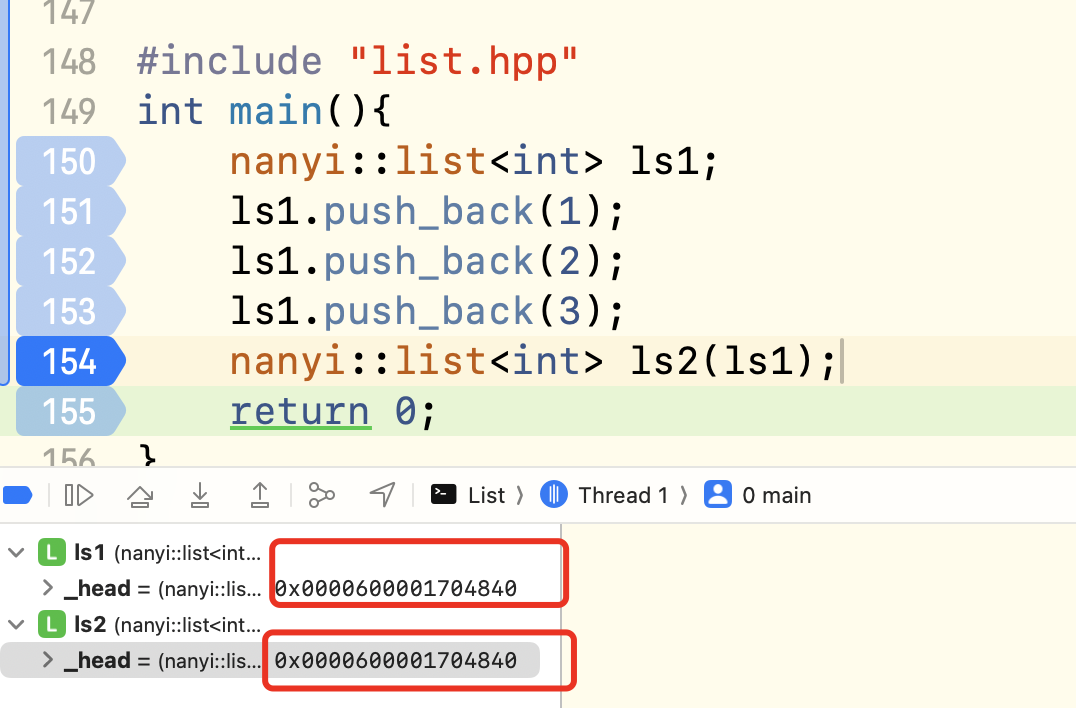
浅拷贝生成的ls2,与ls1的地址相同,对ls1操作也会对ls2有影响
因此我们需要显示的写拷贝构造
//拷贝构造
list(const list<T>& ls){
empty_Init();
for (const auto& e : ls) {
//范围for不确定类型,加引用
push_back(e);
}
}
list的析构函数
~list(){
clear();
delete _head;
_head = nullptr;
}list的赋值运算符重载
//ls2 = ls1
list<T>& operator=(list<T> ls){
std::swap(_head, ls._head);
return *this;
}
list的initializer_list
可以将花括号内容,直接赋值给对象

list (initializer_list<T> il){
empty_Init();
for (const auto& e : il) {
push_back(e);
}
}项目文件
//
// list.hpp
// List
//
// Created by 南毅 on 2024/5/28.
//
#include <iostream>
using namespace std;
namespace nanyi {
template <class T>
class list_Node{
public:
T _data;
list_Node<T>* _prev;
list_Node<T>* _next;
list_Node(const T& data)
:_data(data),
_prev(nullptr),
_next(nullptr)
{
}
};
template <class T,class Ref,class Ptr>
class List_iterator{
public:
typedef list_Node<T> Node;
typedef List_iterator Self;
//不需要写析构函数,这个节点又不是这个类的
//一个类一般不写析构,也就不需要显示写深拷贝
List_iterator(Node* node)
:_node(node)
{
}
//日期类返回一个日期,那么迭代器返回一个迭代器
//++it
Self& operator++(){
_node = _node->_next;
return *this;
}
//--it
Self& operator--(){
_node = _node->_prev;
return *this;
}
//it++
Self operator++(int)//加参数 区分前置后置
{
Self tmp(*this);
_node = _node->_next;
return tmp;
}
//it--
Self operator--(int){
Self tmp(*this);
_node = _node->_prev;
return tmp;
}
Ref operator*(){
return _node->_data;
}
bool operator!=(const Self& it){
return _node != it._node;
}
bool operator==(const Self& it){
return _node == it._node;
}
Ptr operator->(){
return &(_node->_data);
}
public:
Node* _node;
};
//template <class T>
//class const_List_iterator{
//public:
// typedef list_Node<T> Node;
// typedef const_List_iterator Self;
//
// //不需要写析构函数,这个节点又不是这个类的
// //一个类一般不写析构,也就不需要显示写深拷贝
// const_List_iterator(Node* node)
// :_node(node)
// {
//
// }
//
// //日期类返回一个日期,那么迭代器返回一个迭代器
// //++it
// Self& operator++(){
// _node = _node->_next;
// return *this;
// }
// //--it
// Self& operator--(){
// _node = _node->_prev;
// return *this;
// }
// //it++
// Self operator++(int)//加参数 区分前置后置
// {
// Self tmp(*this);
// _node = _node->_next;
// return tmp;
// }
// //it--
// Self operator--(int){
// Self tmp(*this);
// _node = _node->_prev;
// return tmp;
// }
//
//
// const T& operator*(){
// return _node->_data;
// }
//
// bool operator!=(const Self& it){
// return _node != it._node;
// }
//
// bool operator==(const Self& it){
// return _node == it._node;
// }
//
// const T* operator->(){
// return &(_node->_data);
// }
//private:
// Node* _node;
//
//};
template <class T>
class list{
public:
typedef list_Node<T> Node;
typedef List_iterator<T,T&,T*> iterator;
typedef List_iterator<T,const T&,const T*> const_iterator;
//typedef const_List_iterator<T> const_iterator;
void empty_Init(){
_head = new Node(T());//不能使用0初始化,因为类型不确定
_head->_next = _head;
_head->_prev = _head;
}
list(){
empty_Init();
}
void clear(){
auto it = begin();
while (it != end()) {
it = erase(it);
//不能++it,首先会迭代器失效,其次erase会自动返回下一个位置
}
}
//拷贝构造
list(const list<T>& ls){
empty_Init();
for (const auto& e : ls) {
push_back(e);
}
}
//析构
~list(){
clear();
delete _head;
_head = nullptr;
}
void push_back(const T& x){
// Node* newnode = new Node(x);
// Node* tail = _head->_prev;
//
// tail->_next = newnode;
// newnode->_prev = tail;
// newnode->_next = _head;
// _head->_prev = newnode;
insert(end(), x);
}
void pop_back(){
erase(--end());
}
void push_front(const T& x){
insert(begin(), x);
}
void pop_front(){
erase(begin());
}
iterator begin(){
return iterator(_head->_next);
}
iterator end(){
return iterator(_head);
}
const_iterator begin()const
{
return const_iterator(_head->_next);
}
const_iterator end() const
{
return const_iterator(_head);
}
iterator insert(iterator pos , const T& x){
Node* cur = pos._node;
Node* newnode = new Node(x);
Node* prev = cur->_prev;
newnode->_next = cur;
newnode->_prev = prev;
prev->_next = newnode;
cur->_prev = newnode;
return iterator(newnode);
}
iterator erase(iterator pos){
Node* cur = pos._node;
Node* prev = cur->_prev;
Node* next = cur->_next;
// prev cur next
prev->_next = next;
next->_prev = prev;
delete cur;
cur = nullptr;
return iterator(next);
}
//ls2 = ls1
list<T>& operator=(list<T> ls){
std::swap(_head, ls._head);
return *this;
}
list (initializer_list<T> il){
empty_Init();
for (const auto& e : il) {
push_back(e);
}
}
public:
Node* _head;
};
}
4.list与vector的对比
vector与list都是STL中非常重要的序列式容器,由于两个容器的底层结构不同,导致其特性以及应用场景不同,其主要不同如下:





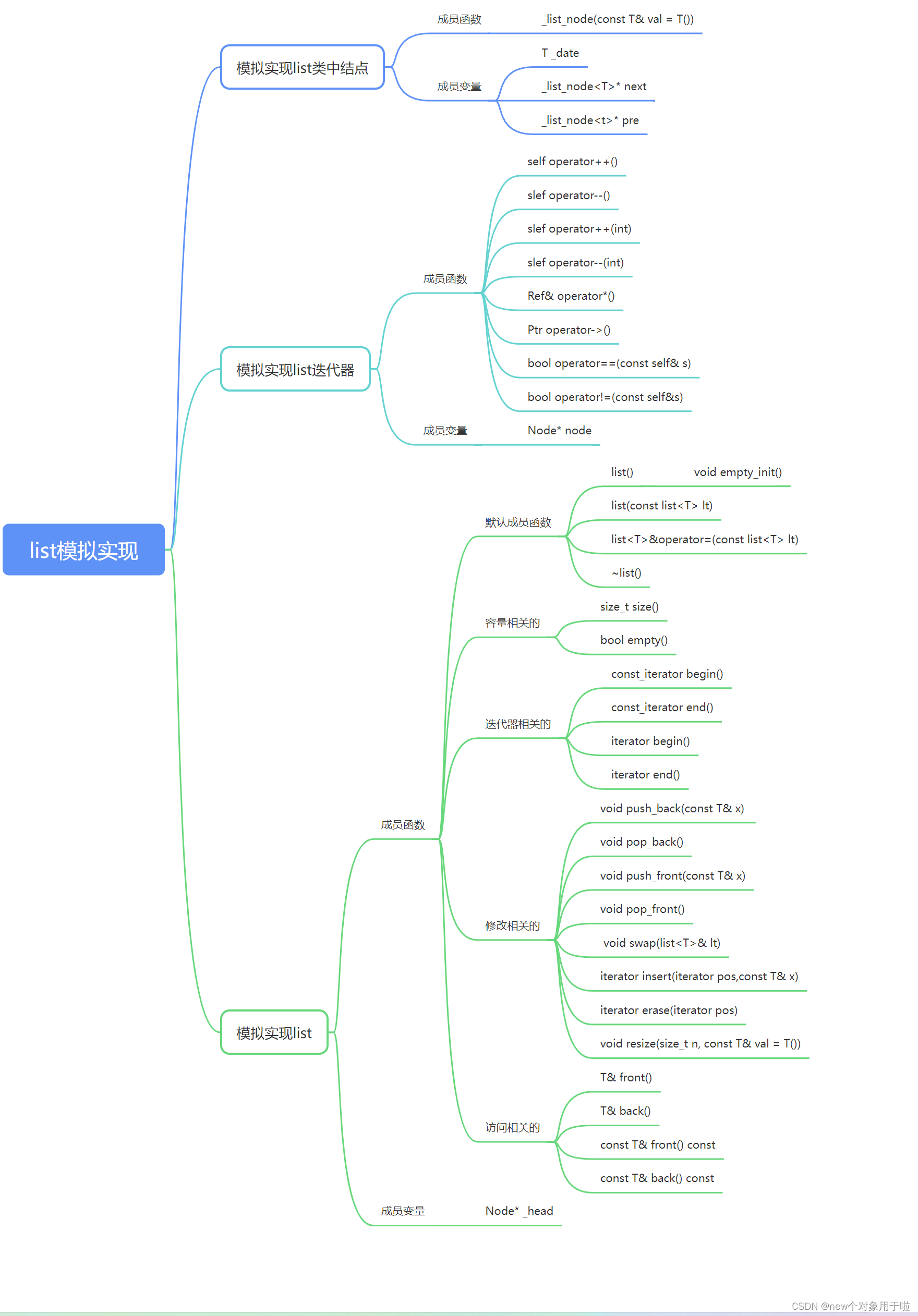

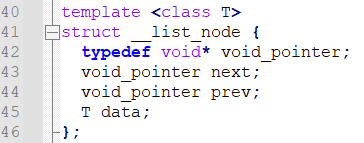
![[ C++ ] <span style='color:red;'>STL</span>---<span style='color:red;'>list</span><span style='color:red;'>的</span><span style='color:red;'>模拟</span><span style='color:red;'>实现</span>](https://img-blog.csdnimg.cn/direct/a13e469e42b14b578977d629135031cf.png)





